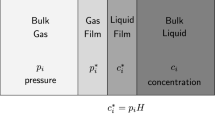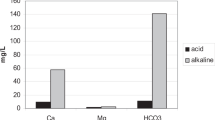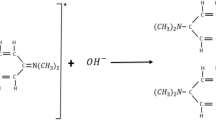Abstract
THE fact that Sphagnum or peat shaken with a neutral salt gives rise to an acid reaction in the solution has long been known. Baumann and Gully first explained this phenomenon as due to the adsorption of the base by colloids and the liberation of the acid. This view has been the subject of much criticism, especially by Odén, who regards the acidity as due to the presence of organic—humic—acids. An important argument of Odén is that no proof has been offered that the acid of the salt employed is ever present in the free state in the solution. We have been able to provide this proof by two different methods.
This is a preview of subscription content, access via your institution
Access options
Subscribe to this journal
Receive 51 print issues and online access
$199.00 per year
only $3.90 per issue
Buy this article
- Purchase on Springer Link
- Instant access to full article PDF
Prices may be subject to local taxes which are calculated during checkout
Similar content being viewed by others
Author information
Authors and Affiliations
Rights and permissions
About this article
Cite this article
SKENE, M., STUART, G. Acidity produced in Salt Solutions by Sphagnum. Nature 115, 605–606 (1925). https://doi.org/10.1038/115605a0
Issue Date:
DOI: https://doi.org/10.1038/115605a0
This article is cited by
Comments
By submitting a comment you agree to abide by our Terms and Community Guidelines. If you find something abusive or that does not comply with our terms or guidelines please flag it as inappropriate.



